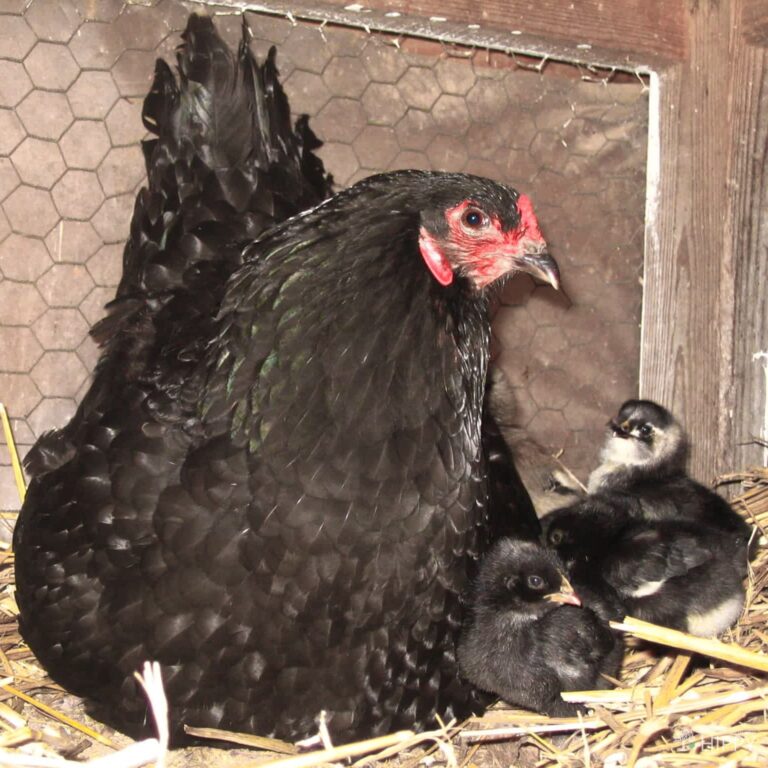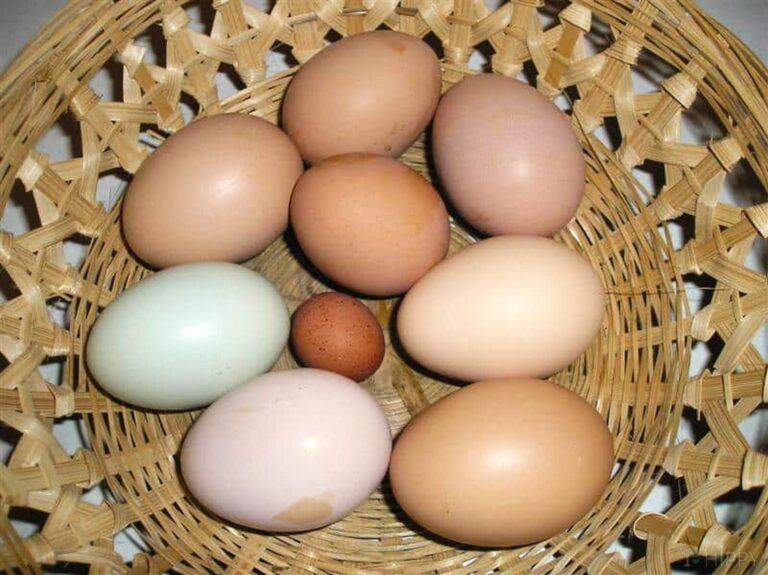When you have a flock of chickens that you depend on for laying, you probably have the gathering part of your routine down to a science: check the boxes in the morning, check them in the evening, and collect the eggs as you find them.

Simple. But what happens when a hen decides to go broody? Maybe she does not want to give the eggs up, or maybe she decides to hide them from you, only to be found later?
In any case, you are now faced with collecting an egg from beneath a broody hen that has sat on it for some time. Are these eggs safe to eat?
Eggs taken from a broody hen are still safe to eat so long as they are fresh, 1 to 3 days old. Older eggs may not be safe whether or not they are fertilized.
Turns out there is a lot to consider when the moment of truth comes. That egg you took from one of your broody mamas might not make for good eating.
Generally, you can safely eat the eggs from a broody hen so long as you get them on your usual daily collection schedule…
But, when that doesn’t happen you’ll need to carefully assess whether or not the egg is good. Keep reading to learn more.
What is a Broody Hen?
To make sure that new owners and folks unfamiliar with chickens in general are on the same page, it might be helpful to define what a broody hen is.
A broody hen is a chicken that is sitting on a nest of eggs in an effort to hatch them. When a hen feels the urge, she stops laying and starts sitting.
This behavior is instinctual and can be exhibited by any chicken, regardless of whether or not the eggs are fertilized.
Some breeds are much more prone to “going broody” than others, and regardless of breed it is not uncommon for hens to do this.
This is important to consider if you are collecting your flock’s eggs or food because eggs from beneath a broody hen will have likely been much warmer for much longer than normal, and might be hidden enough that you miss it on the usual collection route.
Caution: Fertilized Eggs Will Start Developing Under a Hen
Before we go any further, it must be pointed out that if the eggs your broody hen is sitting on are fertilized, they might develop into chicks whether or not she remains on the nest, or at least develop further.
This can make for a particularly harrowing surprise if you don’t get to the eggs right away, as they could be cracked for you to find a vascular system inside or even a partially formed embryo. Sad stuff… and gross.
How can you determine if the eggs are fertilized? The first question is whether or not you have a rooster in your flock.
If you don’t, the eggs are not fertilized, and there is no danger of them developing into chicks.
What if the Eggs are Fertilized, or Could Be?
If you do have a rooster and he has access to your hens, however, there’s a good chance that the eggs may be fertilized. If this is the case, you will need to take extra care in handling them.
If you get to the eggs right away you can halt further development and eat the eggs normally by putting them in an egg carton and storing them in the back of your refrigerator, where it is very cold.
If you are in doubt at all concerning whether or not the eggs are fertilized, you can candle them.
This is done by holding the egg up to a bright light in a darkened room, and looking through the shell to see if there is anything developing inside.
If you see red blood vessels or a partially formed embryo, the egg is fertilized, and you’ll need to decide what to do about it.
How Long Have the Eggs Been There?
This is the next most important question you need to answer if you are considering eating an egg taken from a broody hen: how long was it under there?
If the answer is 1-3 days, no problem! These eggs are still likely safe to eat. In fact, you might not even notice a difference in taste or quality.

Older Eggs are Probably Not Good to Eat
If the answer to the above question is “more than 3 days,” you need to be a little more careful. Older eggs may not be safe regardless of whether they are fertilized.
This is because the longer an egg goes without being refrigerated, the greater the chance that bacteria will have had a chance to grow inside, particularly considering how warm the egg would have been kept.
This can cause severe food poisoning, which no one wants…
If you don’t know how long the egg has been there, you’ll have to collect it and do some tests. More on that presently.
You Took the Egg. Now What?
Once you have retrieved the eggs in question your poor mama hen is likely going to go berserk.
She will calm down eventually, but give her space and keep an eye on her to make sure she does not enter a depression. Anyway, back to the eggs.
Your first step is to try and ascertain their age and developmental status, if any, with the least intrusive means possible.
First, candle the eggs. If you don’t see anything whatsoever developing that’s good but you aren’t in the clear yet.
Next, use the float test on the egg in question. Fill a bowl with cool water and gently lower the egg in question into it. If it sinks and stands on end, pointing up, it’s probably still good.
If it stands on end but tilts to one side, it’s getting old. If it floats completely, don’t trust it and trash it.
This sounds like hokey old wives’ wisdom but believe it or not it is a highly viable and surprisingly accurate diagnostic method.
If the float test goes well you’re probably in good shape but to be on the safe side you should still check the eggs one at a time when cracking them, and consider refrigerating the eggs as soon as possible, just to be sure.
Anyway, there is more to do. Keep reading.
If You Wash It, Refrigerate it Promptly
If you decide to wash the egg, be sure to do so with cool water and dry it off immediately afterward. Washing an egg removes the “bloom” or cuticle, a natural protective barrier that helps keep bacteria out.
Once the bloom is gone, bacteria can enter through the pores in the shell and contaminate the egg, so it is important to refrigerate the egg as soon as possible after washing it.
You can extend the shelf life of a washed egg by coating it with mineral oil, Vaseline, or even beeswax, but this is really only necessary if you don’t plan on using the egg in a timely fashion.
If You Don’t Wash It, Don’t Refrigerate It
If you choose not to wash the egg, you don’t need to refrigerate it right away. In fact, if you do it will actually cause the egg to spoil faster.
This is because the temperature difference between the cool interior of the fridge and the warm air every time you open the door will cause condensation on the shell, which provides an easy entry point for bacteria. You should, however, wash the egg immediately before use.
Just remember: No wash, no fridge!
When Cracking a Brooded Egg, Use Your Senses
When the time comes to actually eat the egg, you’ll want to be more diligent in your inspection than you might be when handling grocery eggs.
This is because there is a greater chance that bacteria may have contaminated the egg at some point during its development.
Start by giving the egg a once-over for any obvious irregularities in the shell. If the shell looks cracked, slimy, or otherwise abnormal, don’t use it.
Next, give it a sniff test. If it smells bad, don’t use it.
If the egg passes these initial tests, you can go ahead and crack it open into a clean bowl by itself (not with a bunch of other eggs willy-nilly).
Look again, and smell carefully: If it looks and smells normal at this, it is probably safe to eat.
Any foul odor upon cracking is a surefire indicator you should not eat the egg! Be extra safe by thoroughly cooking any egg until the yolk is completely set.
Eggs taken from a broody hen can still be safe and good to eat, but you must be cautious!
Tom has built and remodeled homes, generated his own electricity, grown his own food and more, all in quest of remaining as independent of society as possible. Now he shares his experiences and hard-earned lessons with readers around the country.
Find out more about the team here.
